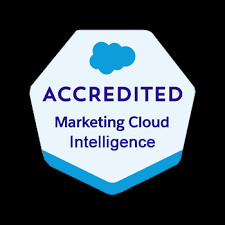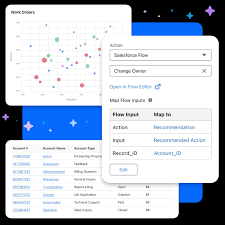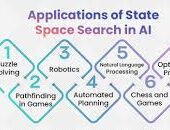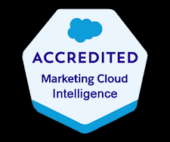In today’s AI-driven business environment, customer experience (CX) has evolved from being a buzzword to a critical factor in determining success. It’s no longer enough for businesses to offer high-quality products or excellent service alone—today’s customers are always online, engaged, and seeking the most convenient, relevant, and enjoyable experiences. This is where Salesforce Data Cloud becomes a game-changer, providing the tools needed to meet modern customer expectations.
Transforming Customer Experience with Salesforce Data Cloud
Salesforce enables businesses to collect, integrate, and leverage critical customer information within its ecosystem, offering an all-encompassing view of each customer. This unified customer data allows organizations to forecast visitor trends, assess marketing impact, and predict customer behavior. As data-driven decision-making becomes increasingly central to business strategy, Salesforce Data Cloud and its Customer Data Platform (CDP) features provide a significant competitive edge—whether in e-commerce, fintech, or B2B industries.
Data Cloud is more than just your traditional CDP. It’s the only data platform native to the world‘s #1 AI CRM. This means that marketers can quickly access and easily action on unified data – from across the entire business – to drive growth and increase customer lifetime value.
Data Cloud’s Role in Enhancing CX
By unifying data in one place, Salesforce Data Cloud enables organizations to access real-time customer insights. This empowers them to track customer activity across channels like email, social media, and online sales, facilitating targeted marketing strategies. Businesses can analyze customer behavior and deliver personalized messaging, aligning marketing, sales, and customer service efforts to ensure consistency. With these capabilities, Salesforce customers can elevate the CX by delivering the right content, at the right time, to the right audience, ultimately driving customer satisfaction and growth.
New Features of Salesforce Data Cloud
Salesforce continues to evolve, introducing cutting-edge features that reshape customer interaction:
- Real-Time Data Integration: Salesforce Data Cloud consolidates data from multiple sources in real time, enabling businesses to respond quickly to customer actions. This feature is ideal for companies looking to engage customers during live interactions.
- AI-Driven Insights: With AI-powered tools, businesses can generate actionable insights that address customer needs and build forecasts. This helps improve customer engagement and decision-making.
- Enhanced Targeting: Data Cloud enables deeper audience segmentation, allowing businesses to market to customers individually based on behavior patterns. This level of granularity helps deliver more precise and effective campaigns.
- Cross-Channel Personalization: Salesforce ensures customers experience consistent, personalized interactions across touchpoints—email, SMS, social media, and more.
To fully maximize these features, partnering with a Salesforce Data Cloud consultant can help businesses unlock the platform’s full potential and refine their customer engagement strategies.
Agentic AI Set to Supercharge Business Processes
Salesforce’s vision extends beyond customer relationship management with the integration of Agentic AI through its Customer 360 platform. According to theCUBE Research analysts, this signals a shift toward using AI agents to automate complex business processes. These AI agents, built on Salesforce’s vast data resources, promise to revolutionize how companies operate, offering customized, AI-driven business tools.
“If they can pull this off, where it becomes a more dynamic app platform, more personalized, really focused on those processes all the way back to the data, it’s going to be a clear win for them,” said Strechay. “They’re sitting on cloud; they’re sitting on IaaS. That’s a huge win from that perspective.”
AI agents create a network of microservices that think and act independently, involving human intervention only when necessary. This division of labor allows businesses to capture expertise in routine tasks while freeing human workers to focus on more complex decision-making. However, the success of these AI agents depends on access to accurate and reliable data.
As Gilbert explained, “Agents can call on other agents, and when they’re not confident of a step in a process or an outcome, they can then bounce up to an inbox for a human to supervise.” The goal isn’t to eliminate humans but to capture their expertise for simpler processes.
Empowering Developers and Citizen Creators
At the core of this AI-driven transformation is Salesforce’s focus on developers. The platform’s low-code tools allow businesses to easily customize AI agents and automate business processes, empowering both experienced developers and citizen creators. With simple language commands or goal-setting, companies can build and train these AI agents, streamlining operations.
“It’s always going to be about good data—that’s the constant,” Bertrand said. “The second challenge is how to train agents and humans to work together effectively. While some entry-level jobs may be replaced, AI will continue to evolve, creating new opportunities in the future.”
Is Salesforce Data Cloud the Right Fit for Your Business?
Salesforce Data Cloud offers comprehensive capabilities for businesses of all sizes, but it’s essential to assess whether it aligns with your specific needs. The platform is particularly valuable for:
- Data-Driven Organizations: If your business relies heavily on customer insights, Salesforce Data Cloud provides powerful tools for data management and activation.
- Scaling Personalization: For businesses looking to deliver personalized experiences at scale across channels, Data Cloud’s infrastructure enables seamless execution.
- Customer-Centric Strategies: Companies focused on enhancing the customer journey can benefit from real-time insights and personalized interactions powered by the Data Cloud.
For businesses that fit these scenarios, working with Salesforce’s partner ecosystem or a Data Cloud consultant can help ensure successful integration and optimization.
What’s New in Salesforce’s Latest Release?
The latest Salesforce Spring Release introduced several exciting features, further enhancing Salesforce Data Cloud:
- Generative AI Capabilities: Salesforce has integrated more generative AI tools, enabling businesses to automate personalized content creation, such as emails and landing pages. This reduces workload for marketing teams while boosting customer engagement.
- Expanded Activation Channels: With more channels available for customer data activation, businesses can reach their audience across new touchpoints, maintaining a competitive edge in a fast-changing digital landscape.
- “Bring Your Own Data Lake” (BYOL): This new feature allows businesses to integrate their existing data lakes into Salesforce Data Cloud, providing flexibility in managing and utilizing customer data for greater insights and impact.
These updates reflect Salesforce’s commitment to providing innovative, data-driven solutions that enhance customer experiences and drive business success.













